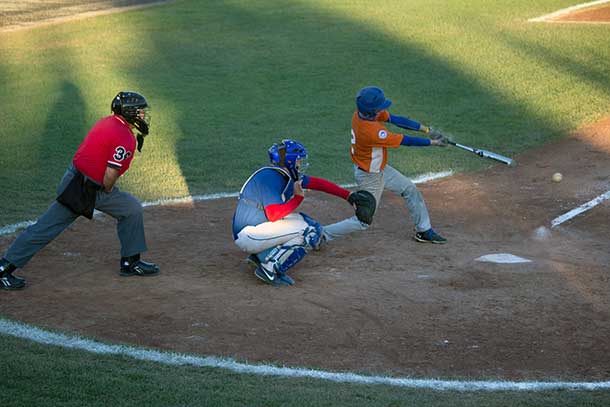
THUNDER BAY – SPORTS – Like most people involved in the sport of baseball, I remember an occasional interaction with umpires, from the point of view of a coach or a player, but there wasn’t really anything that made me stop and think perhaps I should take up umpiring. Then one day, a friend called me up out of the blue, and asked if I owned a light blue dress shirt and a pair of grey slacks. When I said I did, he suggested that I might like to try umpiring and invited me to umpire my first ball game. He also said, “By the way, you know, they pay you?”
I umpired my first ball game in the local Senior Men’s league. I don’t actually remember the game, but I must have had fun and enjoyed the experience, because I went out again, and again and I eventually became a regular umpire. Although at first, I had no idea what I was supposed to do besides rule whether a runner was safe or out, I soon found that the other umpires were ready and willing to offer advice about where to go on the field and what to look for. Someone even provided me with a rulebook!
I quickly realized that probably 75% of plays in any game were going to happen at first base, so I decided that I should probably get to know some of the rules, in particular, what is the rule about plays at first base? Was it true that the “tie goes to the runner?” Which rule defines how to call the play at first base? I read that rulebook from front to back and from back to front and front to back again but I never did find the rule anywhere. As it turns out, baseball uses rule interpretations to apply to various game situations and the rule that applies comes from Rule 4.09 “How a Run Scores.” The Approved Ruling states, “…if the fielder’s throw beat him to the base…” If, in the umpire’s opinion, the runner does not “beat” the ball to the base, the runner is out.
Even with this definition, it takes a while for an umpire to develop the skill of focussing on watching the runner’s foot touch the base and listening for the ball hitting the fielder’s glove and deciding which occurred first. I spent many years trying to perfect this skill and I can still mess it up from time to time.
Looking back over my career as an amateur umpire, I realise that the challenge of umpiring has been one of my biggest thrills in my life. Umpiring has allowed me to meet some really great people who surround the game as players, coaches and other umpires. Just as players and coaches are integral to the game, the sport at any level requires umpires.
If you think you might have an interest in learning some of the basics of umpiring, at no cost to you, come out to Lakehead University’s LU Hangar on Sunday mornings, from 10:30 am to noon. Sessions cover basic positioning, signal mechanics, and basic responsibilities in the two-umpire system through live drills with ballplayers and instructors.
Ken Story
For more information on umpiring you can call: Ken Story (473-4581) or e-mail: ken_story@hotmail.com



